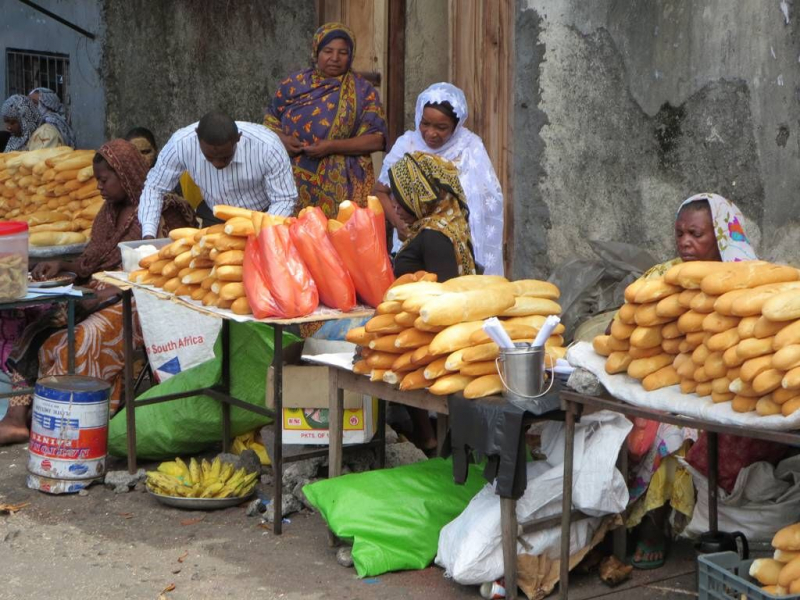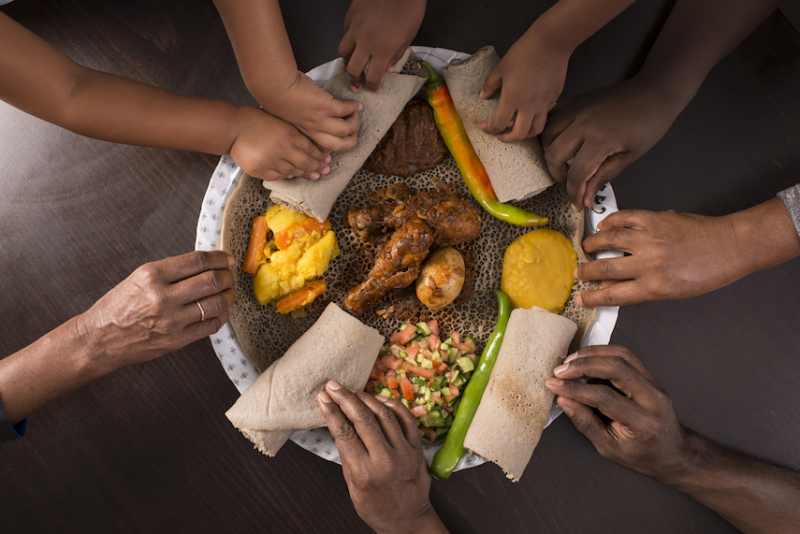Dinning Etiquette
Comorians eat mostly imported rice, usually with a fish or meat sauce. The main source of protein is plentiful local fish (tuna, barracuda, wahoo, and red snapper). Cassava can be fried, boiled, or grilled. Meats that are popular include chicken, goat, and imported beef. Islam forbids eating pork. Comorians season their food with putu, a hot pepper sauce. Tomatoes, onions, cucumbers, and green beans are available in urban markets. Cloves, cinnamon, saffron, and cardamom are examples of indigenous spices. Water, tea, and fruit juice are served with meals.
Most Comorians who eat breakfast have cold leftovers and hot, sweet tea. The afternoon meal consists of a sauce-covered starchy food, such as cassava or green bananas, and some meat. Dinner is the main course, which usually includes a rice dish.
Affluent families in cities eat at a table. Otherwise, families eat cross-legged on a mat around several communal plates of food. Women typically eat separately from men in rural areas, especially when guests are present. Only family members and close friends are invited to eat with the family.
Comorians wash their hands in a bowl of water before and after eating. Food is served buffet-style at large gatherings, and guests stand and take food from many different plates. Nobody eats until a brief blessing is given. While some urban men eat at restaurants when they cannot get home for lunch, most Comorians (especially in rural areas) consider eating out embarrassing—it implies the person is poorly fed at home, has no family, or has marital problems.











